The Ebola epidemic in West Africa continues to destroy lives, decimate communities and orphan children in the affected countries. However, death and suffering are only part of the crisis.
The epidemic is slowing down economic growth and closing down businesses, affecting the means of making a living of millions of the poorest and most vulnerable people in the region. It is putting pressure on government budgets and limiting their capacity to provide basic services for their populations.
As the world organizes an effective medical response, we are not forgetting the human crisis that remains. Through our response, we are working to halt the spread of the disease and address the socio-economic impacts of the crisis.
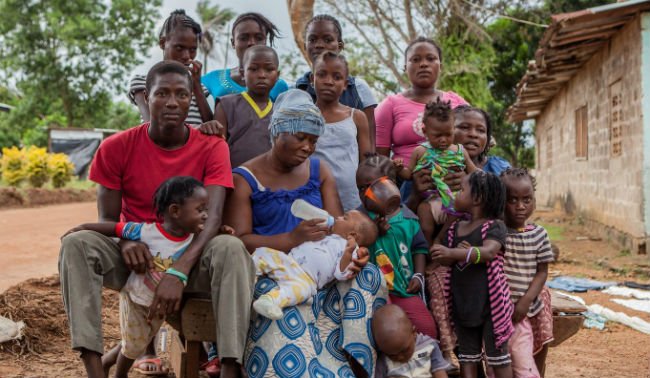
Ebola active case finders in Liberia
In Liberia, we have recruited and trained 1,300 Ebola Active Case Finders to track down anyone showing symptoms of Ebola and refer them for medical assistance. In Montserrado County, where the capital city of Monrovia is located, these Active Case Finders have visited over 66,000 households in 173 communities.
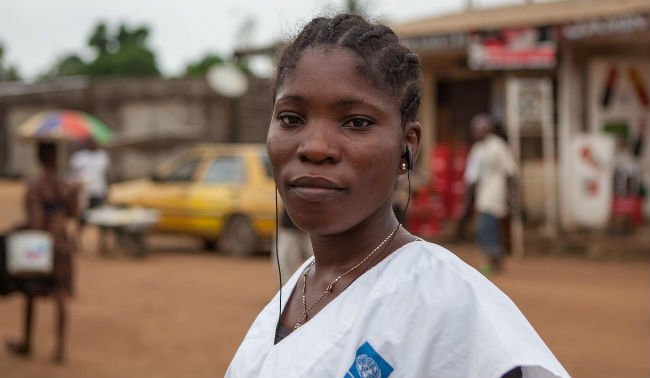
“Those who survive Ebola and come back lose their jobs and are discriminated against in society. People don’t want to come around them or have friendships with them.” – George, Ebola Active Case Finder.
Active Case Finders help survivors of Ebola who face discrimination upon returning home by educating the communities on Ebola and ensuring the community does not shun survivors of Ebola. They also provide psychological support for families of patients, and liaise with Ebola treatment units to keep families informed.
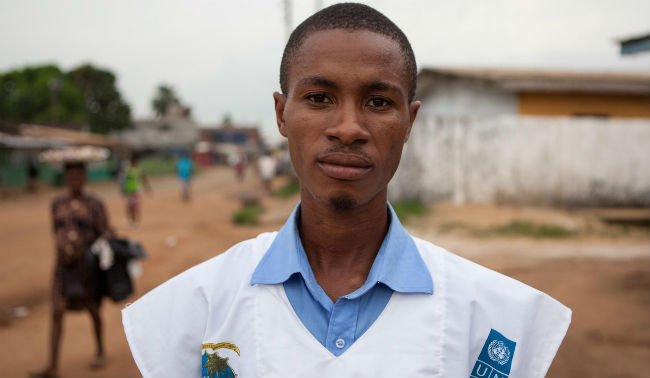
“Our concern is those who are still alive. So we serve them and any other family member that has signs or symptoms.” – Tarweh, Ebola Active Case Finder.
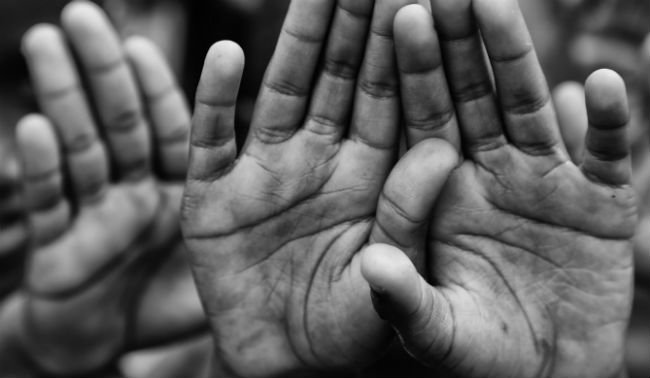
Solidarity kits for survivors of Ebola
Those who survive Ebola and the bereaved of those who did not must endure the decontamination of their household. Homes are stripped bare, clothing and bedding burned, and personal items are disposed of in the decontamination process.
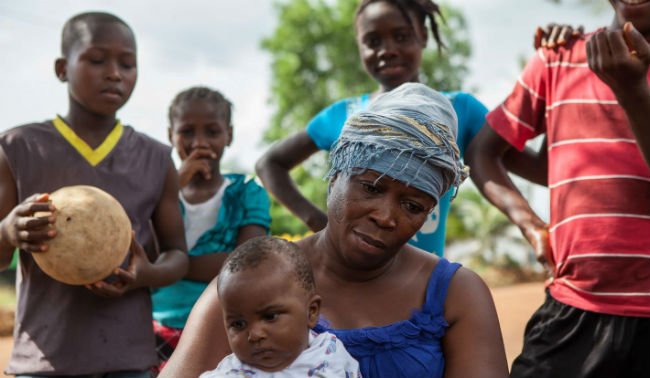
In Sierra Leone, we distributed 105 UNDP Solidarity Kits to kick-start the survivors’ return to a normal life. These kits contain food, household items and hygiene supplies to enable those discharged from treatment centres to start afresh, after returning to their homes to find all their possessions destroyed.
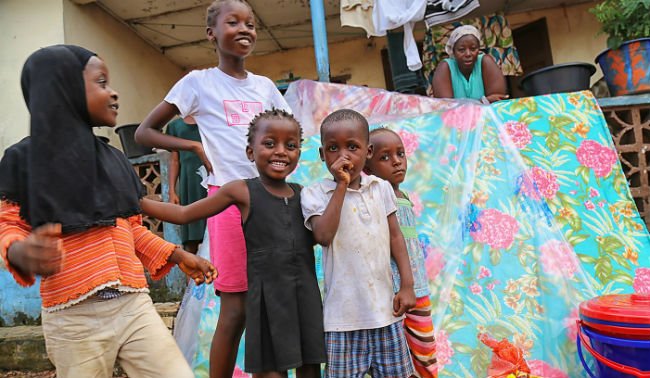
Youth Volunteer Sensitization Campaign in Guinea
In the capital city of Conakry, we mobilized our network of 2,500 youth volunteers to help prevent the spread of Ebola. The volunteers distribute soap and chlorine and teach community members how to thoroughly wash their hands and avoid contact with possible cases of Ebola.
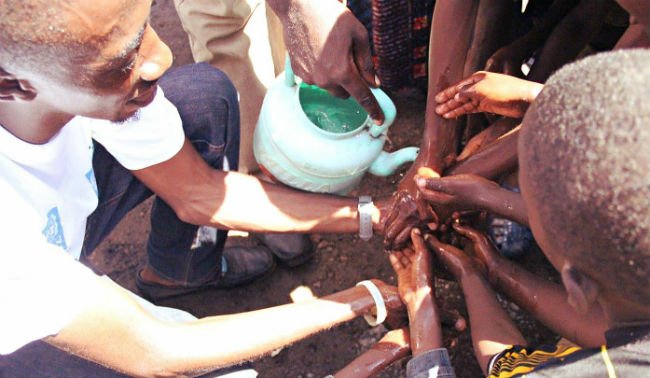
Sensitization Campaign in Sierra Leone
In Sierra Leone, we supported an intensive door-to-door campaign in the capital city of Freetown to educate people on how Ebola is spread and what to do to prevent it.
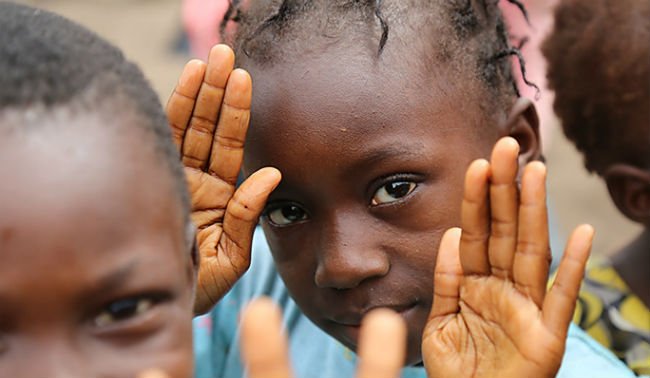
“Some of them have courage to say something to me, ask me a question, and I reply to the question,” UNDP’s Ebola community messenger, Memuna Mansaray said. She goes through Mabella slum, her own community, and speaks face-to-face ensuring the community hears her loud and clear.
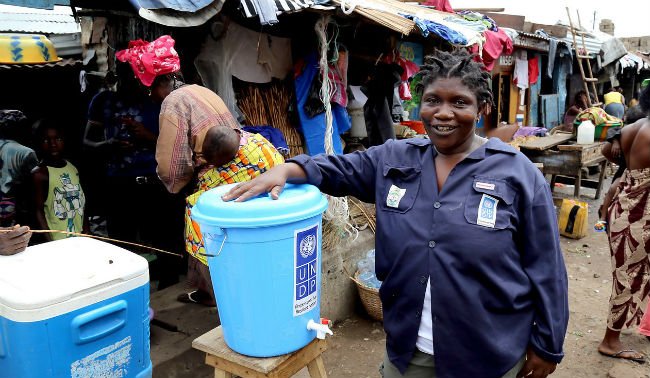
A total of 200 volunteers, who live in the targeted communities, have been dispatched across the city. Each community volunteer is visiting 30 to 40 households per day, reaching over 500,000 of the most vulnerable people in Freetown.
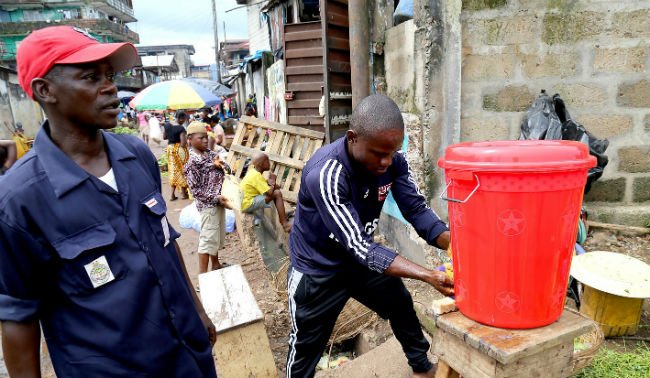
Reaching out to people with disabilities in Sierra Leone
Sierra Leone has one of the highest global rates of people living with disabilities (PLWD). PLWD often live on the fringe of society, marginalized and ostracized by the wider community. With the onset of the Ebola epidemic, this vulnerable group has been isolated even further.
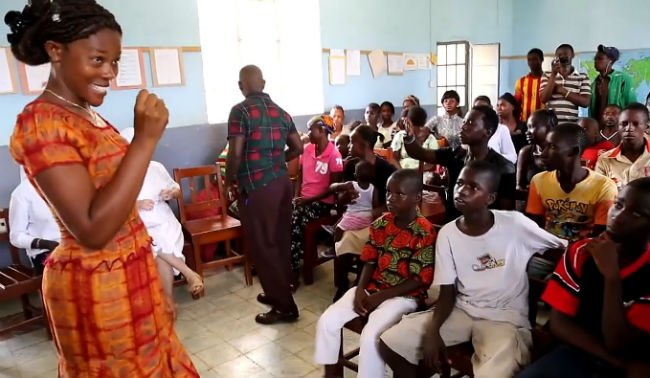
With our support, these vulnerable communities have Ebola messages delivered right to their door and in a language they can access: braille, sign language and pictures. The sensitization campaign reached out to 10,000 women, men and children to provide them with messages in braille, sign language and pictures on how to protect themselves and others from Ebola.
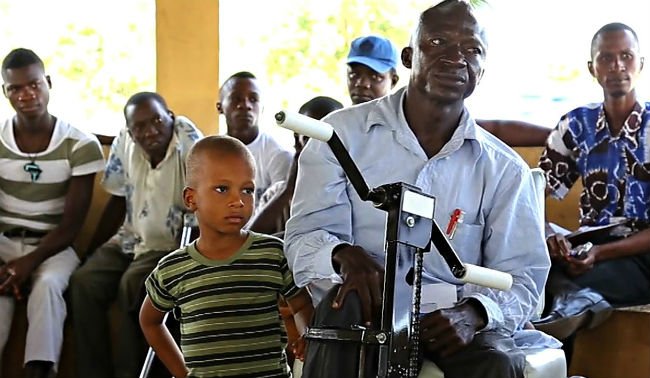
Supporting Guinean women in the fight against Ebola
Through our support, 100 women who head seven cooperatives are helping in the fight against Ebola by processing soap for distribution in public locations across Guinea.
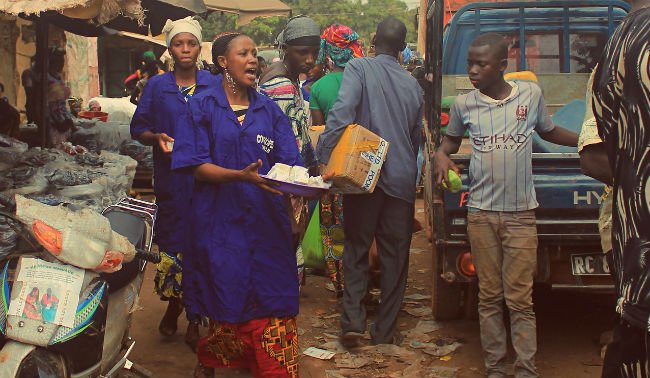
The women don‘t just sell, they inform, sparking conversations with elderly peanut paste sellers, young motorbike men, middle aged shop owners and women selling a few pieces of vegetables on the ground. They reach out to them on the importance of washing their hands to protect themselves against Ebola.
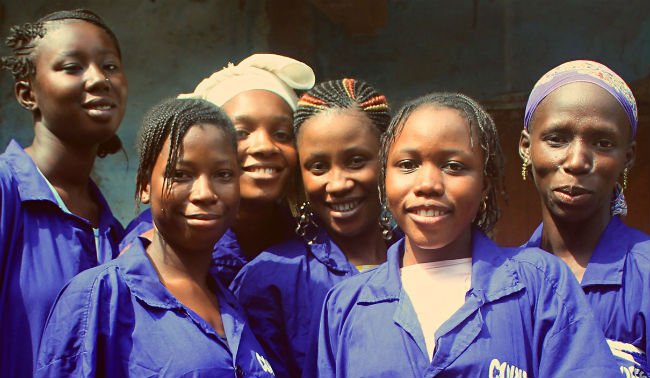
The soap is produced by a separate group of women using diesel engines provided by UNDP, saving hours of manual for the women. They produce up to 1,000 soap items every week.